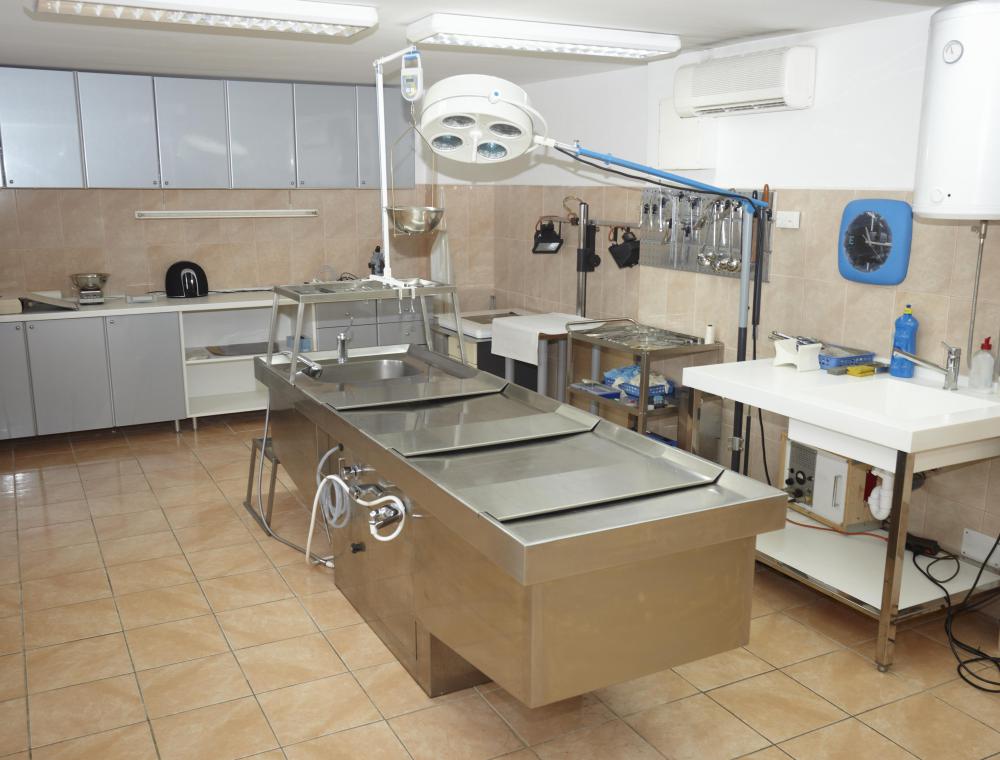At WiseGEEK, we're committed to delivering accurate, trustworthy information. Our expert-authored content is rigorously fact-checked and sourced from credible authorities. Discover how we uphold the highest standards in providing you with reliable knowledge.
What are the Different Forensic Scientist Jobs?
People who watch television shows with the terms CSI (Crime Scene Investigation) or CIS (Criminal Investigative Service) may have a glimmer of the breadth of forensic scientist jobs. Forensic science refers to the application of the methods and knowledge of science to criminal investigations and legal problems. Although people may feel that they have a good sense of the forensic field based on television, a number of characters on these shows do a wide range of jobs, whereas in real life, the specialties tend to be more focused.
One whole set of forensic scientist jobs is in the field of teaching. Lecturers, instructors, professors, and readers all contribute to the education of forensic scientists, sharing their specialties in the classroom. Besides this area, jobs can be roughly broken down into management jobs and specialty technical jobs, including analysts, engineers, criminalists, scientists, technicians, pathologists, and various examiners. Some forensic scientists are employed as consultants or advisors, and some forensic scientist jobs combine managerial and technical elements. Another way to categorize forensic scientist jobs is into the areas of medical practice, laboratory practice, and field service.

Combining these two ways of looking at the field, we might begin by designating crime scene investigators as the field agents. We might then group forensic laboratory directors and managers, forensic account managers, and forensic science commanders, for example, as managers. The medical group would include medical examiners, forensic pathologists, forensic odontologists or dentists, psychologists including profilers, and other medical specialties. And the laboratory group would include experts in ballistics, biology, botany, chemistry, DNA, entomology, fingerprints, firearms and toolmarks, and toxicology, for example.

Forensic scientist jobs are available at a variety of organizations. Probably the first organizations that will come to mind are the local, state, and regional forensic laboratories which are seen so often on television. NCIS may bring to mind federal agencies, which include the Federal Bureau of Investigation, the Postal Service, Customs, and the Drug Enforcement Administration. Forensic scientists are also employed by district attorneys’ offices, and the military.

Obviously, the instructional jobs are often at educational institutions. This may be at a college, a university, or a community college. In addition, the National Forensic Academy, for example, offers ten-week intensive courses for currently employed law enforcement crime scene technicians. Another employment opportunity is at museums, like the Jeffersonian Institution in Bones at which Dr. Temperance Brennan, a forensic anthropologist, works. There are also forensic archaeologists.
AS FEATURED ON:
AS FEATURED ON:

















Discuss this Article
Post your comments